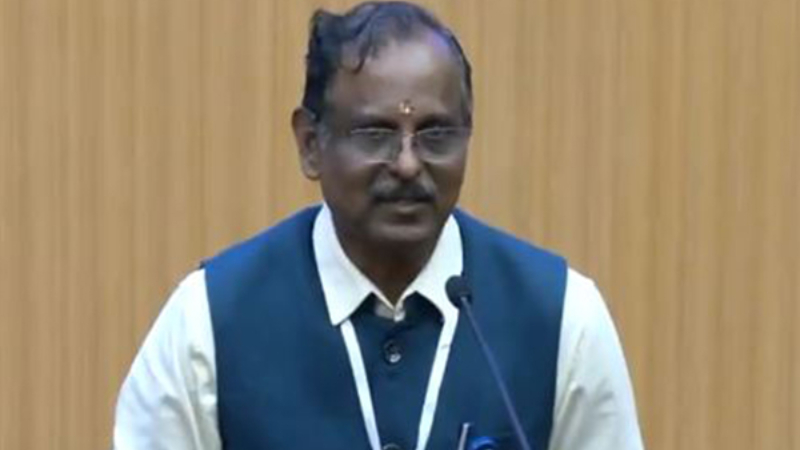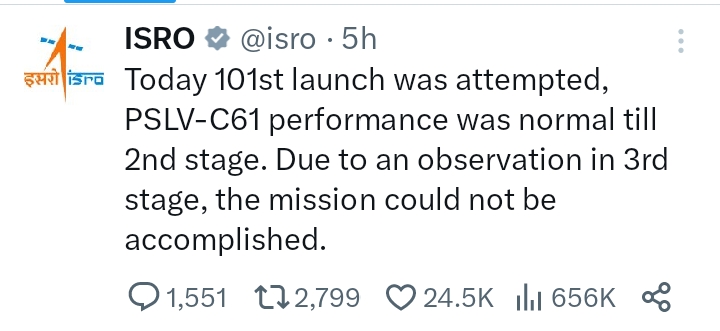By The Sampadak Express
The Indian Space Research Organisation (ISRO) has acknowledged the failure of the EOS-09 satellite launch mission, following an anomaly during the third stage of the PSLV-C61 rocket. ISRO Chairman V Narayanan confirmed the development during a press briefing, stating that although the initial stages performed as expected, the mission could not be completed due to an issue in the third stage.”
Today we attempted the launch of PSLV-C61, a four-stage launch vehicle. The first and second stages operated nominally. However, we observed an anomaly during the third stage. As a result, the mission could not be accomplished. We are currently analysing the entire performance and will provide updates soon,” said Narayanan.

ISRO also shared the update on social media platform X, noting that this was their 101st launch attempt. “PSLV-C61 performance was normal till the 2nd stage. Due to an observation in the 3rd stage, the mission could not be accomplished,” the post stated.

The Polar Satellite Launch Vehicle (PSLV-C61) was carrying the EOS-09 satellite, an advanced Earth observation satellite equipped with C-band Synthetic Aperture Radar (SAR). Designed to operate in a Sun Synchronous Polar Orbit (SSPO), EOS-09 was intended to deliver consistent, high-resolution remote sensing data regardless of weather conditions or time of day.
The launch sequence included the ignition of PS1 and PSOM motors, followed by multiple stage separations and culminated with the satellite’s planned deployment using Orbit Change Thrusters (OCT). The mission also incorporated sustainability measures, including deorbiting fuel for the final stage to ensure responsible space debris management.
EOS-09’s radar imaging capabilities were expected to support India’s disaster management, agriculture, forestry, urban planning, and defense operations. The satellite was built to enhance surveillance and operational response across several key sectors.
Despite the setback, ISRO officials assured that a thorough investigation is underway and that future updates will be shared after a complete performance assessment.





